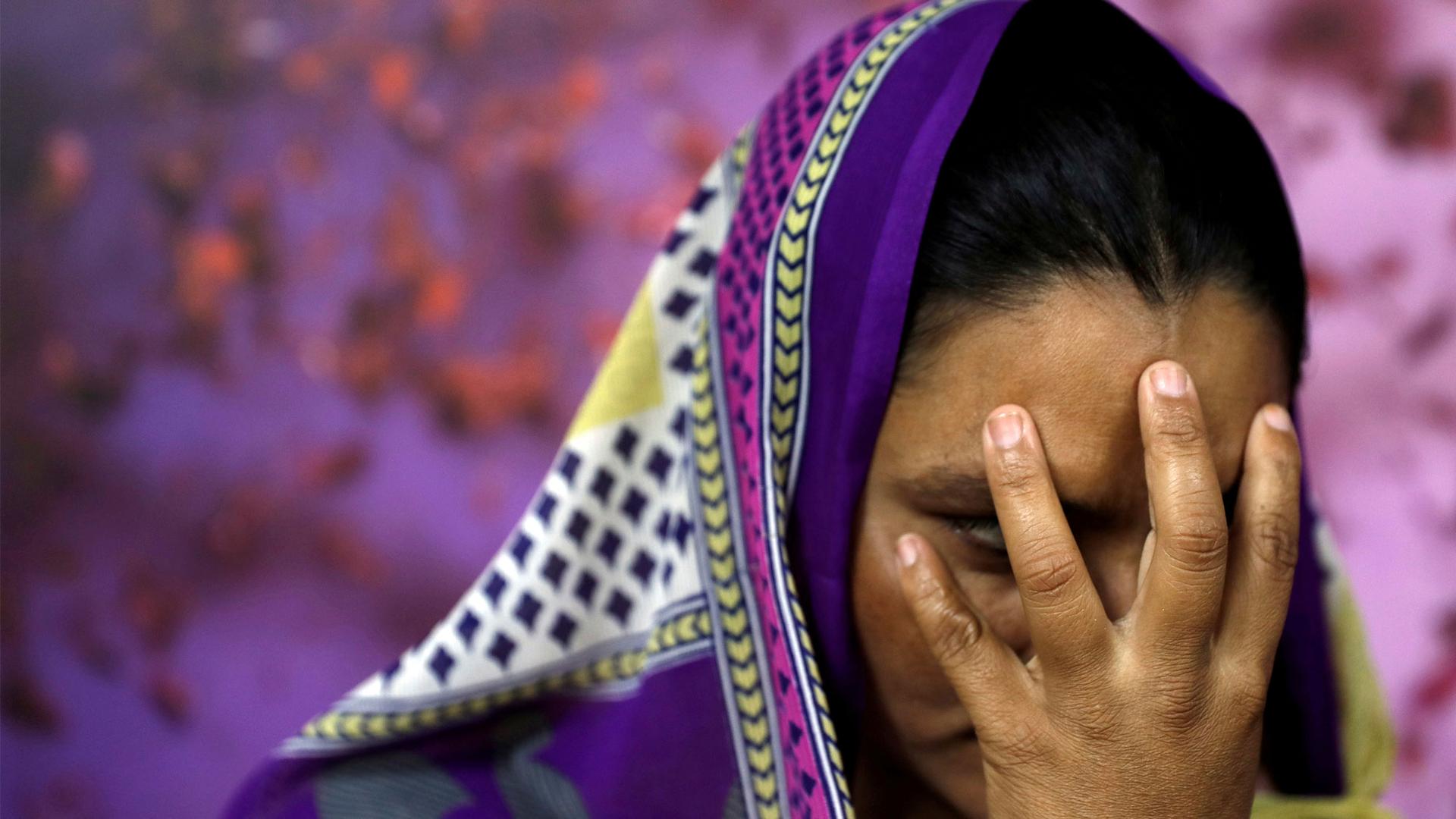Satellites to survivors: 5 goals for the anti-slavery fight in 2019
A survivor of slavery who wished to remain anonymous poses for a picture in New Delhi, India.
With global efforts mounting to combat modern slavery and human trafficking, activists say the world must sharpen its focus in 2019 to meet a United Nations goal of ending the ills by 2030.
About 40 million people are estimated to be enslaved, mostly women and girls in forced labor and forced marriages, in a trade worth an estimated $150 billion a year to traffickers, according to the UN International Labour Organization (ILO).
From technology such as satellite imagery, decent jobs for survivors and stronger action from companies and governments, here are five priorities for the global anti-slavery movement in 2019 as told to the Thomson Reuters Foundation by campaigners.
1. High-tech toolkit
Satellite imagery, artificial intelligence and blockchain have been hailed as vital tools in the fight against slavery.
Whether mapping slavery hotspots such as India’s brick kilns from space or piloting blockchain’s digital ledger to save women in Moldova from traffickers and track supply chains, high-tech tools are helping anti-slavery advocates keep up to speed.
But the world’s tech toolkit must be upgraded, experts say.
“The priority is breaking through the boundaries at all levels of innovation to end slavery,” said Kevin Bales, co-founder of US-based charity Free the Slaves and professor of contemporary slavery at the University of Nottingham in Britain.
2. Banking on businesses
Faced with growing regulatory and consumer pressure, more companies are going public with their efforts to render their operations and supply chains free of exploitation and slavery.
Some smaller firms, such as Australia’s Outland Denim and Tony Chocolonely in the Netherlands, jeans and chocolate makers, are going a step further by stamping goods as slave-free.
Yet too many companies are making promises that have not been backed up by concrete action, said Nick Grono, head of the Freedom Fund, the world’s first anti-slavery private donor fund
“We need companies to live up to commitments — understanding how their supply chains work, focusing on giving a voice to workers and tackling recruitment fees,” Grono said. “Signing up to declarations and talking at conferences just won’t cut it.”
3. Survivor support
Survivors of slavery are calling for more support to rebuild their lives than just shelter, counselling and healthcare.
From making clothes and furniture in India to cooking, catering and even coding in the United States, a growing number of businesses — big and small — are now providing such chances.
Major British firms plan to create 300 jobs for survivors by 2020 as part of a scheme launched by the supermarket co-op, while technology giant Apple last month said it would soon employ victims of trafficking in its retail stores worldwide.
“If we’re going to succeed in ending slavery, survivors need to be given hope, and real opportunities to reintegrate into society,” said Minh Dang, founder of the Survivor Alliance, a platform for victims to connect with each other and experts.
4. Activist action
Anti-slavery groups and activists fighting for the rights of the vulnerable or exploited say they are being increasingly muzzled as more nations deny or downplay the issue of slavery.
Italy has this year turned away NGO ships carrying migrants from Libya, framing it as an anti-trafficking measure, while campaigners in Thailand defending migrant workers have been hit with defamation cases after accusing a chicken farm of abuses.
“Modern slavery defenders are under attack worldwide – there is an assertiveness among authoritarian governments that modern slavery does not matter,” said Phil Bloomer, head of the Business and Human Rights Resource Center — a pressure group.
5. Public power
Consumers have growing resources to learn about slavery and put pressure on big brands and governments and access to social media to question brands, campaigners say.
Various rankings compare the promises and practices of companies in any given industry, such as clothing or technology, while large British firms must by law publish online their strategies to tackle modern slavery in their supply chains.
“We need people to stand up and challenge governments and businesses to change their ways and make real progress against slavery,” said Jasmine O’Connor, head of Anti-Slavery International — the world’s oldest human rights organisation.
Reporting by Kieran Guilbert, Editing by Belinda Goldsmith
Credit: The Thomson Reuters Foundation, the charitable arm of Thomson Reuters, that covers humanitarian news, women’s and LGBT+ rights, human trafficking, property rights and climate change.
Our coverage reaches millions each week, but only a small fraction of listeners contribute to sustain our program. We still need 224 more people to donate $100 or $10/monthly to unlock our $67,000 match. Will you help us get there today?
